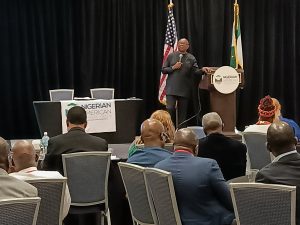More beer than water as severe drought wreaks havoc on Cape Town

CAPE TOWN: “If you pee, don’t bother touching the flush!” Simon, who rents his Cape Town flat out on Airbnb, has a rather strange demand to make of all his guests. “Use the flush only if it is completely necessary. I know it is hot, but do not spend more than two minutes in the shower.”
Day Zero is what Simon and his fellow Cape Town residents call it and they expect it to arrive in May. They pray to the weather gods to save them, but the crisis is already here.
Cape Town, with an estimated population of 3.74 million, has been hit by a severe drought and is well on its way to being waterless.
The last time it rained here was on New Year’s eve, but that lasted all but two minutes. Even the summer showers have stayed away this year, which has caused the water levels in most dams to go down — the biggest, Theewaterskloof, is down to 24 per cent of its actual capacity. Piotr Wolski, a scientist at the Cape Town University has predicted Day Zero to arrive as early as April 21.
Locals have been told not to spend more than 87 litres of water a day. Anybody who uses more is fined.
“The Mayor has already warned us to prepare for the worst,” Simon says. “If the water level in dams reduces to 10 per cent, it won’t be possible to draw water. They are planning to draw water from elsewhere, but how long can they do that?” asks Simon.
From star hotels to public toilets, the restrictions are the same. In the streets, people from all walks of life queue up for an hour to get a bucket of water. Boards at fuel stations proclaim ‘only fuel, no car-wash’ while laundry shops have been forced to shut.
“Till the last week of December, I had a few people, including locals, asking for clothes to be washed. But there is absolutely no way of washing so many. I can’t pick and choose. So I’ve temporarily shut the shop,” says a shopkeeper in Myrtle Street in the heart of Cape Town.
The other day, the city centre witnessed volatile scenes with the native Black community alleging that they were not allowed to fetch more than a bucket of water while the whites were allowed two.
At the Newlands stadium — venue to the India-South Africa test — even vendors don’t sell more than one water bottle per head. Spectators resort to beer to beat the heat.
#savewater is one of the most commonly-seen hoardings across the city, even more than commercial advertisements. The message, writ large everywhere, is clear. ‘Think water, care a little but save a lot’.






